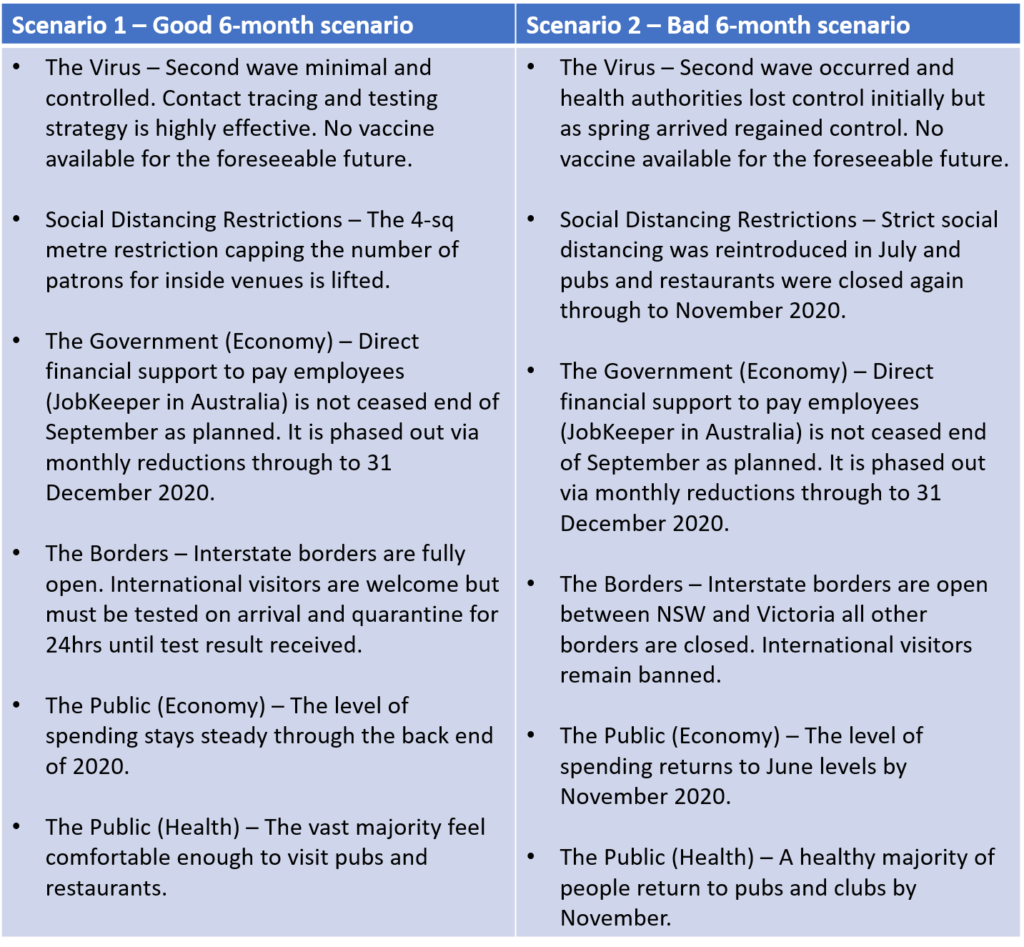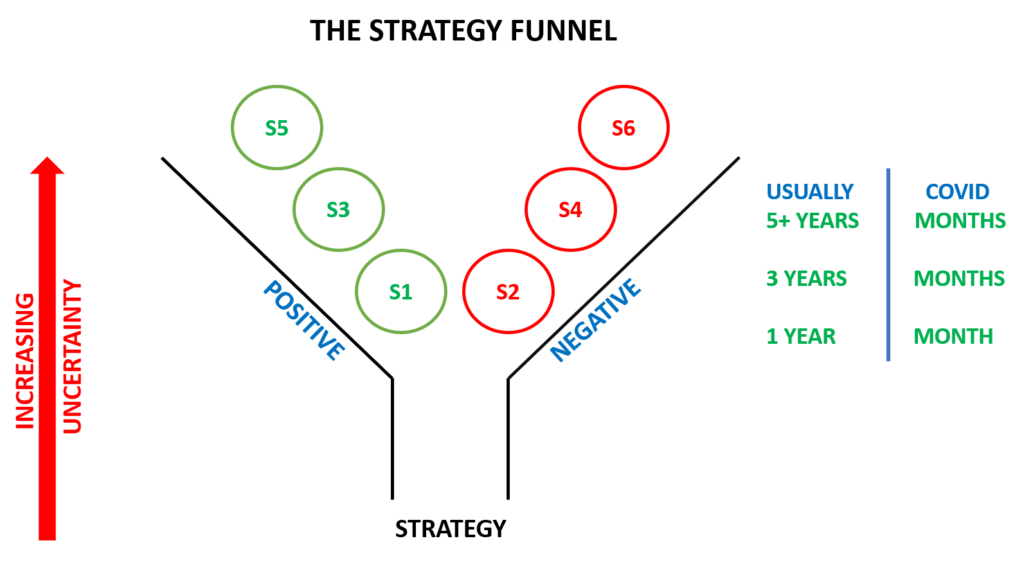One of my readers reached out to me after I introduced the strategy funnel last week which made me decide to prepare an example of how the approach works for a prolonged crisis, like COVID-19. One of my sons co-manages the bars in a three-level restaurant offering a variety of dining experiences. It is located in Manly here in Sydney, which is a tourist area. I have been thinking a lot about the restaurants and hence his future. So I thought I would use the restaurant’s owners as an example.
A large organisation with a strategy team and/or crisis management team would develop many more scenarios with differing time horizons than I have below, however, to keep this brief, and to make it applicable for a restaurant owner, I only went with two scenarios in the six months horizon.
At the time of writing there are signs of a second wave of the virus occurring in Australia, albeit Victoria is pouring massive resources into combating its outbreaks. In Manly, pubs and restaurants are open but with social distancing restrictions limiting the number of patrons by the 4 sq. m. rule. A number that many might find generally unaffordable if not for government support for wages.

The challenge now is: How do you orientate your strategy?
Again using the restaurant as an example: Can you devise a way of running your business so it can be profitable under both scenarios? For example, can you run a menu set that is cost effective enough, but of sufficient quality to allow you to charge enough to make a profit? Can you get more efficient in your kitchens so you need less staff? Can you centralise some food prep? Can you keep enough reserves in cash to outlast your competitors when government support ends and the industry faces the inevitable rationalisation unless a vaccine becomes available? Can you innovate your business model? For example, developing an at-home fine dining experience using catering equipment and a team of mobile chefs otherwise unemployed?
Once your strategy is set, you need to work hard on it for a month, doing your best not to second guess your assumptions unless something major happens. Then revisit the two scenarios at the end of the month. The scenarios will change or might be completely jettisoned if your assumptions prove very different to the unveiling reality.

Stay safe and adapt — quickly.

